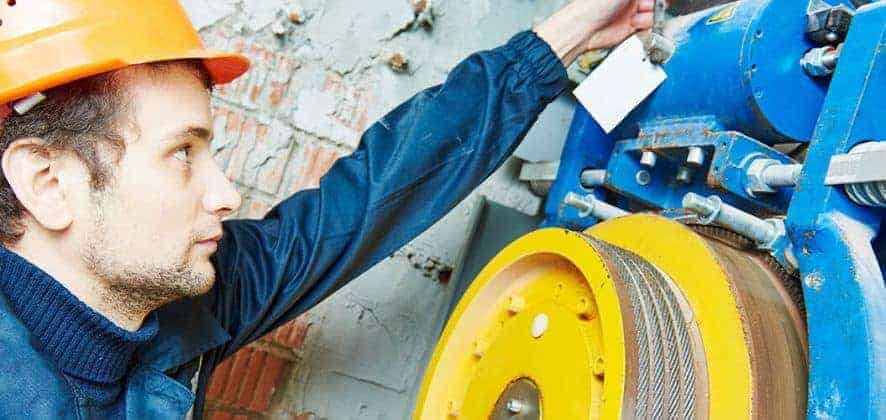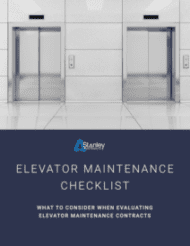What is an Elevator Load Test? Here Are the Requirements & Procedures

The way elevator services are broken down is similar to taking care of a car. Every certain number of miles, your vehicle needs basic care like an oil change or filter replacement. But when you reach a milestone, like 30,000 miles, your car typically needs more extensive services like rotating the tires and topping off certain fluids. If you don’t take care of these necessary services, your car could run into serious, costly issues.
Failing to abide by elevator testing and inspection requirements set by your state and jurisdiction can have serious consequences. One of the most important tests that absolutely must be performed is the elevator load test.
What is an Elevator Load Test?
In New England, many states require cars to pass annual inspections to ensure vehicles are safe to be on the road. Elevators go through a similar process called a load test.
This is a state-required procedure intended to make sure that elevators are continuously able to lift their rated (maximum) load at their rated (maximum) speed. The elevator technicians performing the load test will be looking at the car speed when it both rises and falls.
During the test, elevators are loaded to their weight capacity to make sure all safety systems are properly operating. This is done with special elevator test weights. In some states, 125% of the rated load is placed inside of the elevator cab. For example, if an elevator’s capacity is 2,000 lbs., the load test will require 2,500 lbs. This also ensures that the brake system is working properly. Load tests also include an assessment of how the elevator operates with no load.
Is This the Same as a Pressure Test?
A full-load test is different than a pressure test. Pressure tests should be performed on hydraulic elevators annually.
How Often Should Elevator Load Tests Be Performed?
State and local regulations require building owners and operators to have their elevator systems frequently inspected to ensure public safety. Typically, this includes annual inspections in order to receive a certification that proves the elevators are up to code.
Although full elevator inspections are an annual requirement, load tests don’t need to be performed as frequently. Both hydraulic elevators and elevators that are supported by cables should receive a full-load test once every 5 years. Hydraulic elevators also require annual pressure relief testing.
Elevator Load Testing Requirements by State
| MA | ME | NH | RI |
| Full-load every 5 years | Full-load every 5 years | Full-load every 5 years | Full-load every 5 years |
What if I Don’t Have My Elevators Tested?
If your elevators don’t receive the proper inspections and certificates when necessary, they can be taken out of commission.
Think about the number of people who rely on your elevators every day to get to where they need to be. If your elevators aren’t properly tested and inspected, these people could be in danger.
Putting off routine testing and maintenance can also deteriorate your elevators, which can cause bigger issues down the road.
Do You Have an Elevator Maintenance Contract?
Some elevator maintenance contracts will cover 5-year full-load safety tests. However, some limited service agreements may not cover the cost of these tests, meaning you’ll need to pay out of pocket to have them performed. Be sure to check your elevator maintenance contract to see what services are covered so you’re prepared for any unexpected costs!
Stanley Elevator has a full-time elevator testing and inspection team ready to help, whenever you need it. Call or message us today so we can help you with your elevator load testing or any other inspection services you may need.
